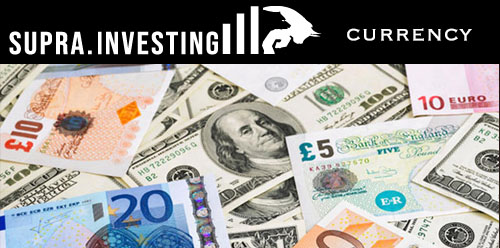Dollar eases after Fed-spurred rise; yen stronger ahead of BOJ

NEW YORK (Reuters) -The U.S. dollar eased against a basket of currencies on Thursday, but remained near a six-month high, a day after the Federal Reserve signaled U.S. monetary policy will remain restrictive for longer.
The Japanese yen strengthened against the greenback before Friday's Bank of Japan policy announcement, while the pound and the Swiss franc slipped after the British and Swiss central banks kept rates unchanged.
The Fed held interest rates steady at the 5.25%-5.50% range, in line with market expectations on Wednesday, but it signaled that its officials increasingly believe hawkish policy can succeed in lowering inflation without wrecking the economy or leading to large job losses.
Along with another possible rate hike this year, the Fed's updated projections show significantly tighter rates through 2024 than previously expected.
"Dollar bulls absolutely got what they wanted yesterday," Helen Given, an FX trader at Monex USA.
"Though Powell didn't go as far as to say he expects a soft landing, it's pretty clear between the dot plot and the Fed's updated growth forecasts the central bank has convinced markets that is where the U.S. economy may be headed," Given said.
"Of course, this contrasts fairly directly with guidance from the ECB and BoE, facing much more dire economic situations," she said.
The U.S. dollar index, which measures the currency against a basket of rivals, was 0.10% lower at 105.33, after rising as high as 105.74, its strongest since March.
The yen was up 0.58% at 147.46 per dollar. With the yen still near a 10-month low against the greenback attention remains fixed on the possibility of the Japanese government intervening in foreign exchange markets to prop up the currency.
Japan will not rule out any options in addressing excess volatility in currency markets, the government's top spokesperson said on Thursday, issuing a fresh warning against the yen's decline towards the psychologically important 150-mark per dollar.
"Traders are repositioning before both the meeting tomorrow and CPI releases," Monex's Given said.
The BOJ will end its negative interest rate policy next year, the majority of economists said in a Reuters poll, as the market has begun to envisage the demise of its ultra-easy monetary settings.
"While we are unlikely to get a rate hike tonight, we may just hear some comments that imply one is to come," Brad Bechtel, global head of FX at Jefferies, said in a note.
The pound fell to its lowest since March after the Bank of England held interest rates steady on Thursday, following a cooler-than-expected inflation report the previous day.
Thursday marked the first time since December 2021 that the BoE did not raise rates at its monetary policy meeting, a halt to a run of 14 consecutive rate hikes.
The pound was 0.41% lower at $1.22935.
Earlier, the Swiss franc dropped after the Swiss National Bank unexpectedly held rates steady, marking the first time the central bank has not hiked since March 2022, although it kept options open for further rate rises.
Meanwhile, Sweden's Riksbank and Norway's central bank both raised rates by 25 basis points, in line with expectations.
The euro was up 0.18% against the Swedish crown and about flat against the Norwegian crown following the respective decisions.
In cryptocurrencies, bitcoin was down about 2.0% on the day at $26,593.
